Groundnut is another name for peanuts (Arachis hypogaea), which are a popular legume known for their edible seeds. Peanuts are native to South America and are now grown in many parts of the world. They are an important crop due to their nutritional value and use in various culinary applications.
Groundnuts, or peanuts, originated in South America and have been cultivated for thousands of years. They spread globally through the Columbian Exchange, becoming a vital crop in Africa and eventually making their way to the United States. Peanuts gained popularity in the U.S. with the invention of peanut butter and are now grown worldwide, prized for their nutritional value and culinary versatility.
There are three main types of groundnut oil:
Refined groundnut oil: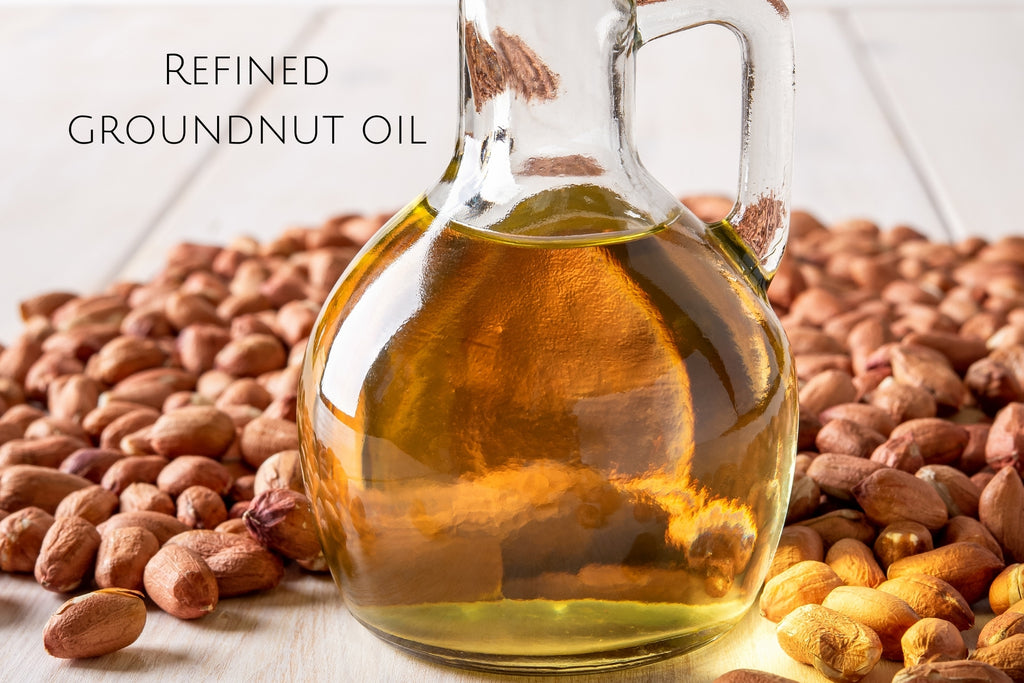
This is the most common type of groundnut oil available. It is made by crushing peanuts and then refining the oil to remove impurities and give it a neutral flavor and color. Refined groundnut oil has a high smoke point, making it ideal for frying and other high-heat cooking methods.
Cold-pressed groundnut oil: 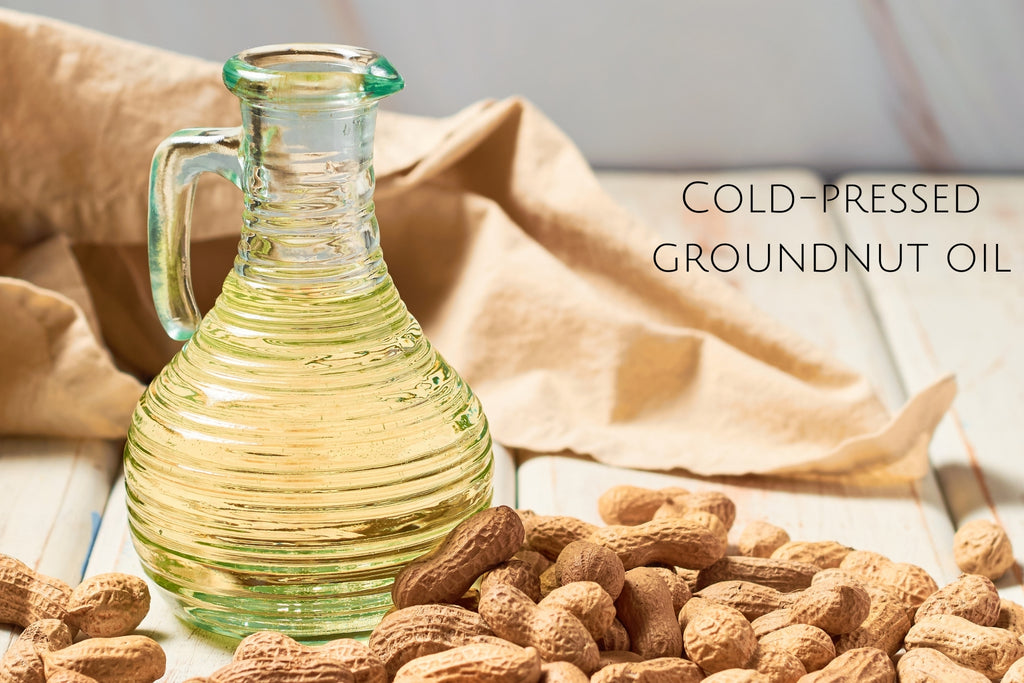
This type of groundnut oil is made by crushing peanuts at low temperatures to extract the oil. This process helps to preserve the oil's natural flavor and nutrients. Cold-pressed groundnut oil has a lower smoke point than refined groundnut oil, so it is best used for low-heat cooking methods, such as salad dressings and marinades.
Roasted groundnut oil: 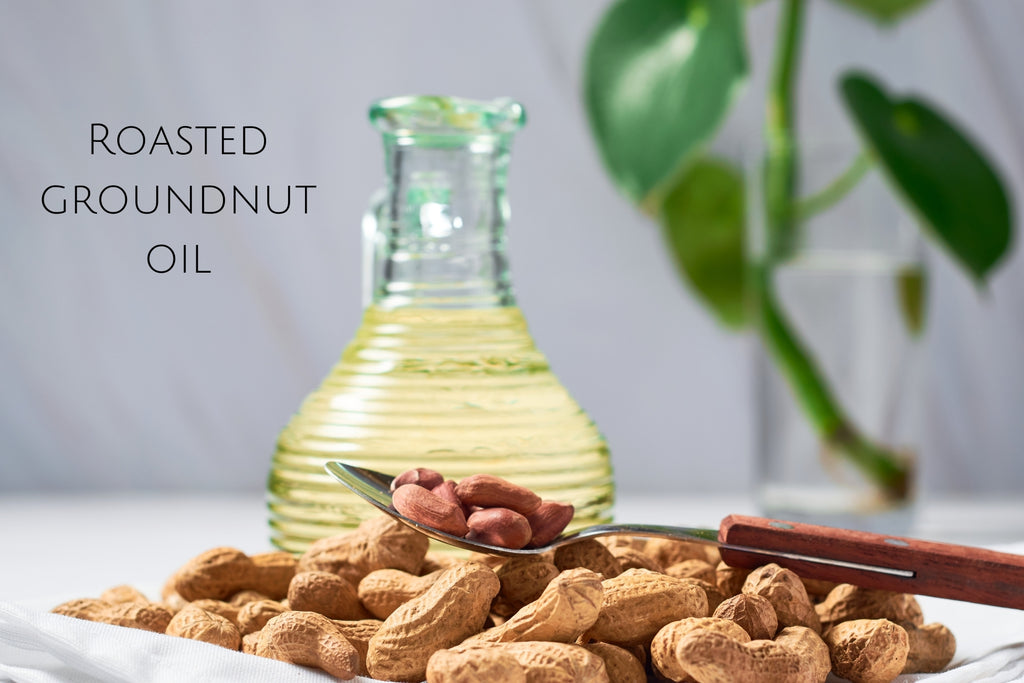
This type of groundnut oil is made by roasting peanuts before crushing them to extract the oil. This gives us the oil a rich, nutty flavor and aroma. Roasted groundnut oil is often used in Asian cuisine, such as stir-fries and noodle dishes.
Nutritional values of groundnut: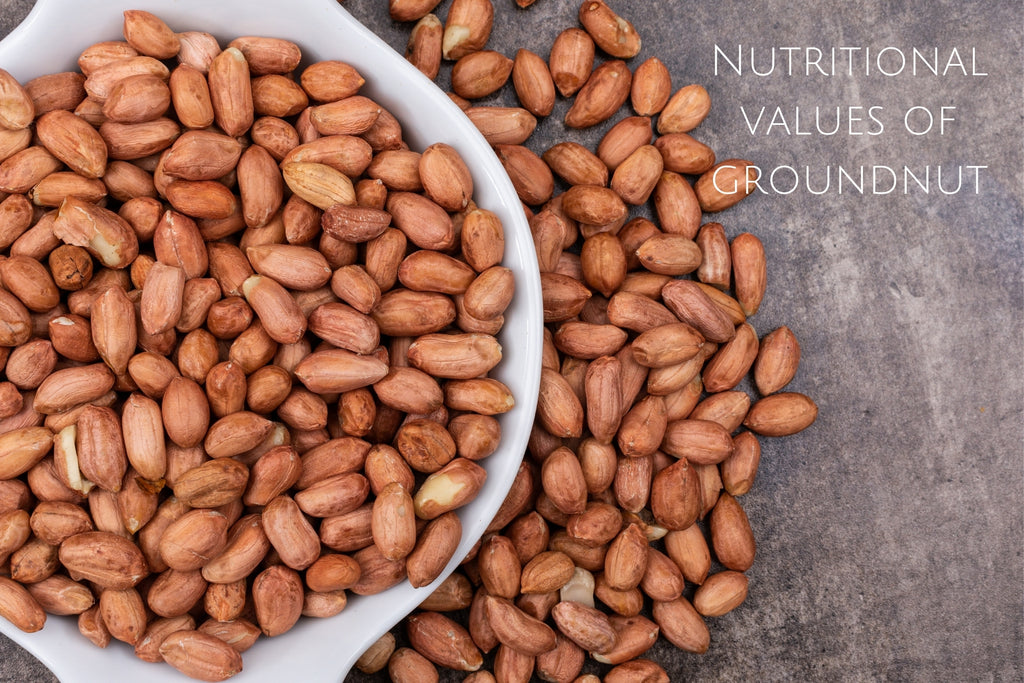
The approximate nutritional values of groundnuts (peanuts) per 100 grams of raw peanuts:
- Calories: 567 calories
- Protein: 25.8 grams
- Fat: 49.2 grams
- Saturated Fat: 6.28 grams
- Monounsaturated Fat: 24.43 grams
- Polyunsaturated Fat: 15.56 grams
- Carbohydrates: 16.13 grams
- Dietary Fiber: 8.5 grams
- Sugars: 4.72 grams
Vitamin E: 8.33 milligrams (44% of the Daily Value)
Vitamin B3 (Niacin): 12.07 milligrams (60% of the Daily Value)
Vitamin B1 (Thiamine): 0.64 milligrams (43% of the Daily Value)
Vitamin B6: 0.35 milligrams (18% of the Daily Value)
Folate: 240 micrograms (60% of the Daily Value)
Manganese: 1.934 milligrams (97% of the Daily Value)
Magnesium: 168 milligrams (42% of the Daily Value)
Phosphorus: 358 milligrams (36% of the Daily Value)
Potassium: 705 milligrams (20% of the Daily Value)
Zinc: 3.27 milligrams (22% of the Daily Value)
Iron: 2.43 milligrams (13% of the Daily Value)
Calcium: 92 milligrams (9% of the Daily Value)
- Phytosterols: Approximately 60 milligrams
- Omega-6 Fatty Acids (Linoleic Acid): Approximately 15.56 grams
- Antioxidants: Peanuts contain various antioxidants, including resveratrol and flavonoids, which can help protect cells from oxidative stress.
Health Benefits of Peanuts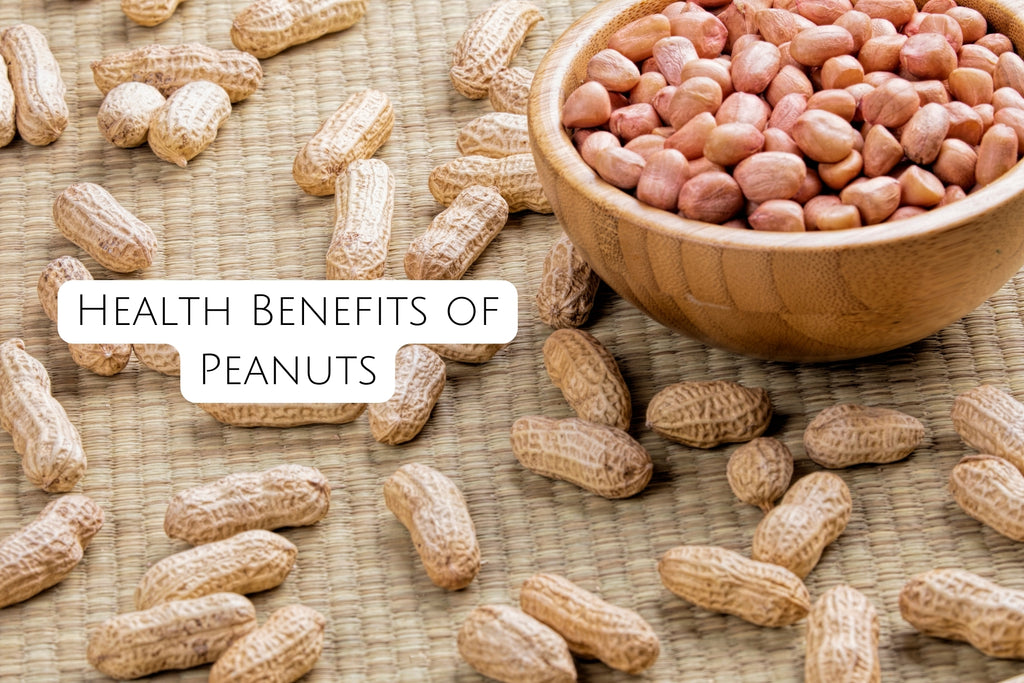
Peanuts, also known as groundnuts, offer several health benefits when consumed in moderation as part of a balanced diet. Here are some of the key health benefits of peanuts:
Nutrient-Rich: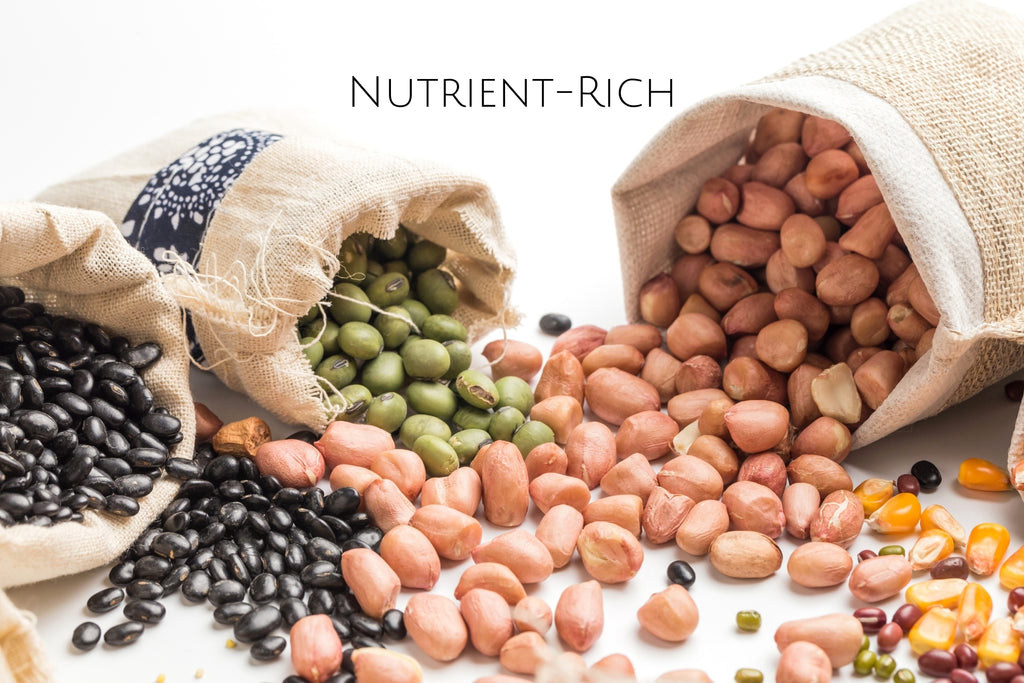
Peanuts are packed with essential nutrients, including protein, healthy fats, vitamins, and minerals, making them a nutritious addition to your diet.
Groundnut benefits forHeart Health:
-
Healthy Fats:
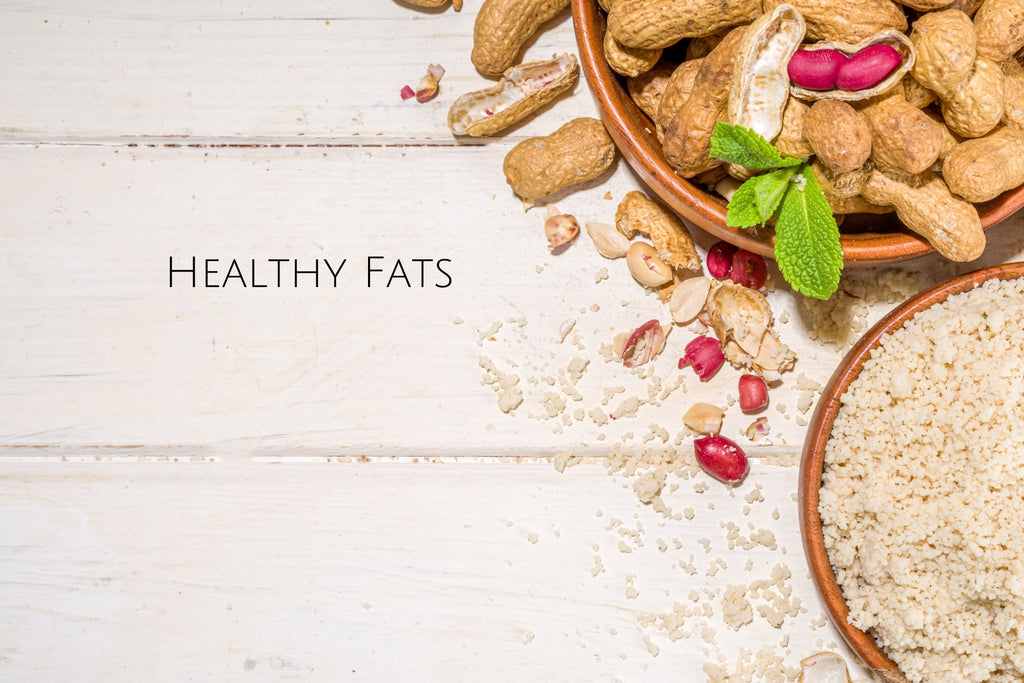
- Peanuts are a good source of monounsaturated and polyunsaturated fats, which can help lower LDL cholesterol levels and reduce the risk of heart disease.
-
Resveratrol:
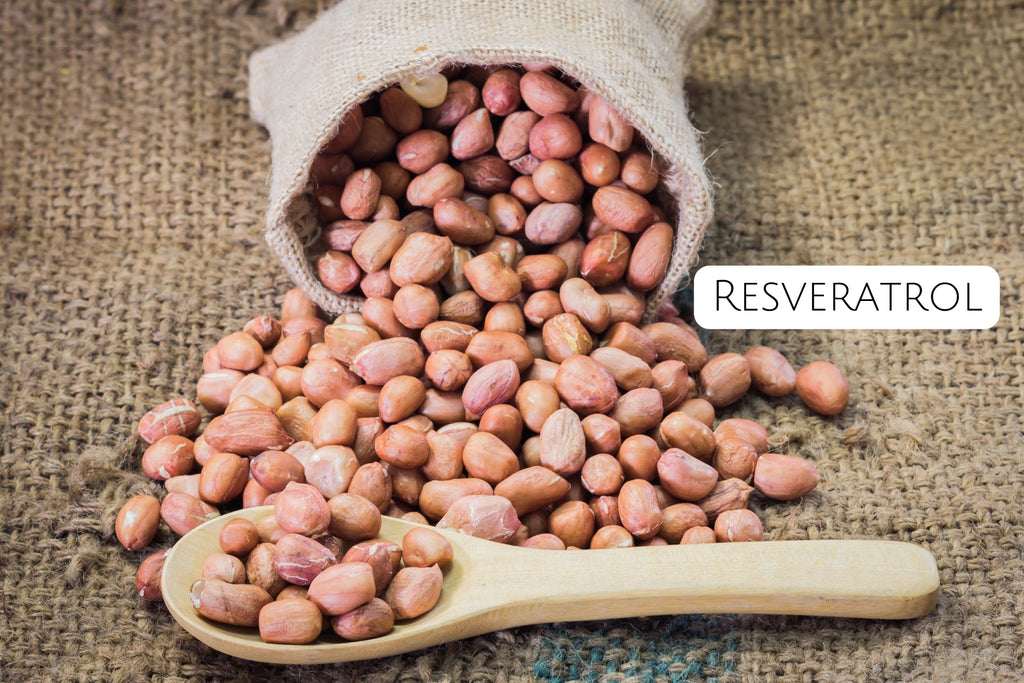
- Peanuts contain resveratrol, an antioxidant that has been associated with improved heart health and reduced risk of heart disease.
-
Arginine:
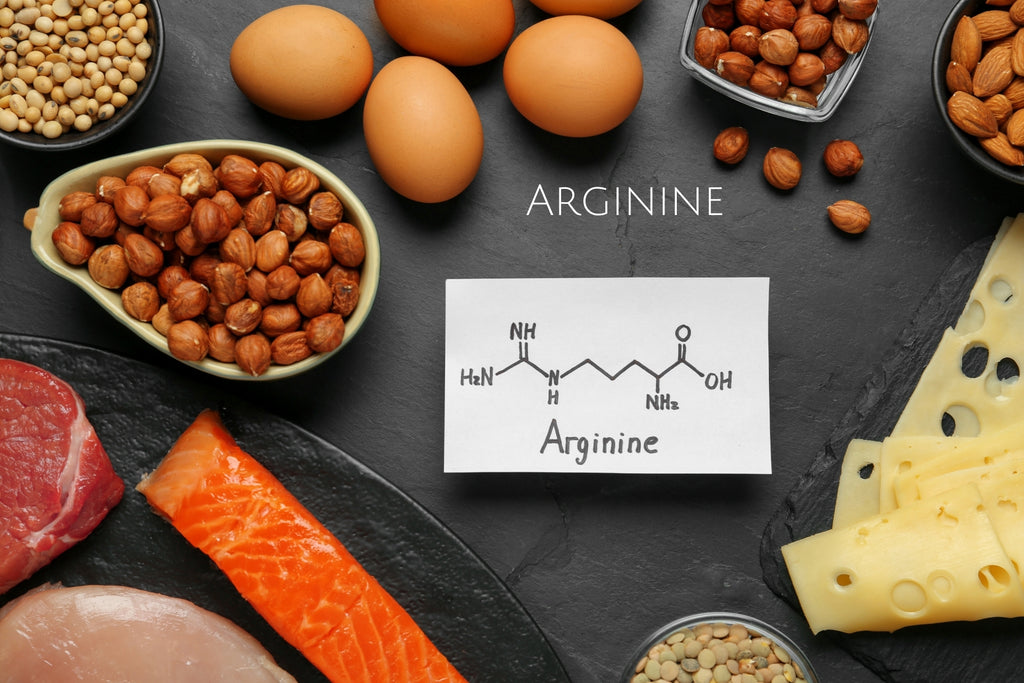
- They are also rich in arginine, an amino acid that helps relax blood vessels, potentially promoting better blood flow.
Weight Management:
Despite being calorie-dense, peanuts can contribute to satiety due to their protein and fiber content, helping you feel fuller for longer and potentially reducing overall calorie consumption.
Blood Sugar Control:
Peanuts have a low glycemic index, meaning they have a smaller impact on blood sugar levels. The combination of protein, healthy fats, and fiber in peanuts can help to stabilize blood sugar.
Rich in Antioxidants: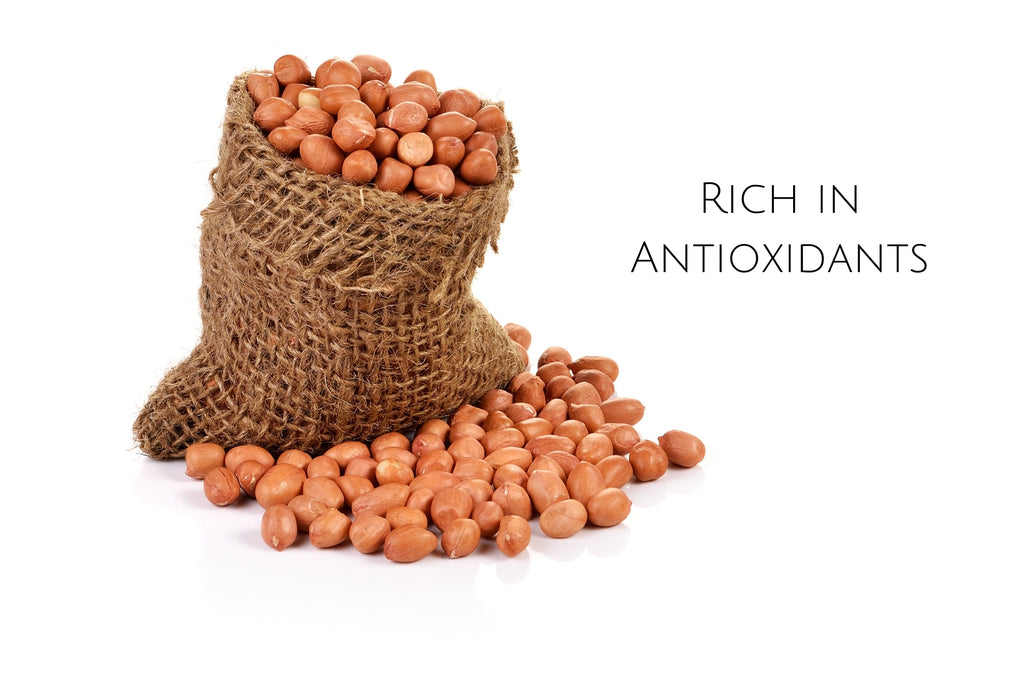
Peanuts contain various antioxidants, such as resveratrol, flavonoids, and vitamin E, which help protect cells from oxidative damage.
Bone Health:
The magnesium and phosphorus in peanuts are essential for maintaining strong and healthy bones.
Energy and Muscle Health: 
Peanuts are a good source of protein, which is important for muscle repair and growth, as well as overall energy production.
Skin Health: 
The vitamin E and healthy fats in peanuts may contribute to healthy skin by maintaining its elasticity and preventing premature aging.
Digestive Health:
The fiber in peanuts supports digestive health by promoting regular bowel movements and preventing constipation.
Reduced Risk of Gallstones: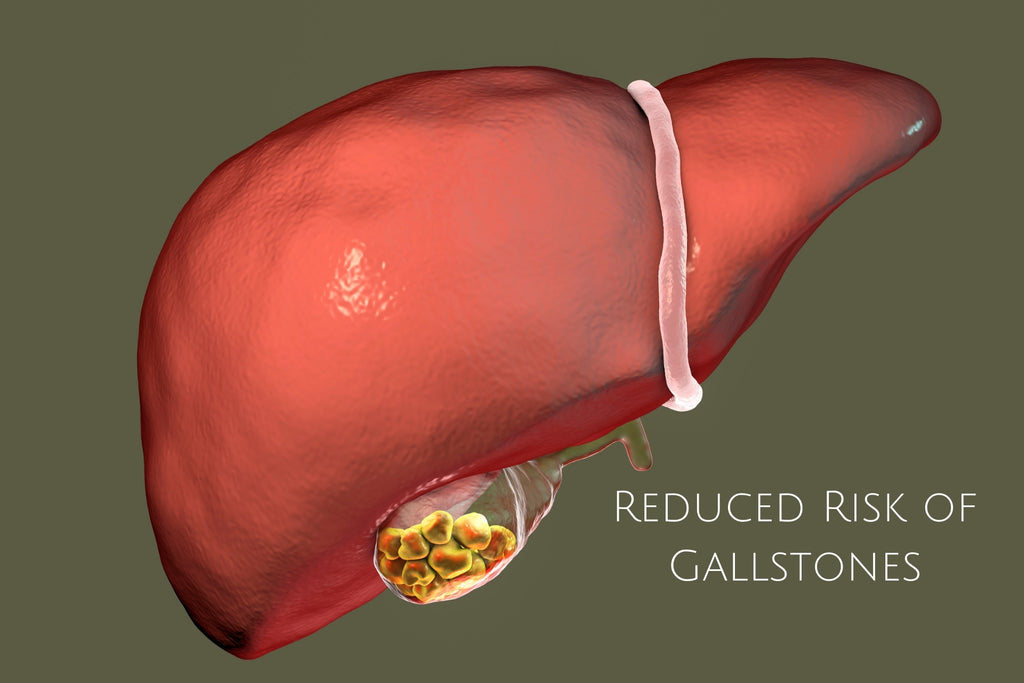
Some studies suggest that regular consumption of peanuts may lower the risk of developing gallstones, particularly in women.
Cognitive Function:
The niacin (vitamin B3) in peanuts plays a role in cognitive function and may contribute to brain health.
Reduced Risk of Certain Cancers:
Some research suggests that peanut consumption may be associated with a reduced risk of certain cancers, including colorectal and stomach cancers.
Ayurvedic ways to consume groundnut:
- Groundnut oil: Groundnut oil is a good source of monounsaturated and polyunsaturated fats, which can be used for cooking and in salad dressings.
- Groundnut chutney: Groundnut chutney is a popular Indian condiment made with groundnuts, spices, and herbs. It can be eaten with idli, dosa, and other South Indian dishes.
- Groundnut flour: Groundnut flour can be used to make bread, pancakes, and other baked goods.
Groundnut health benefits for diabetic people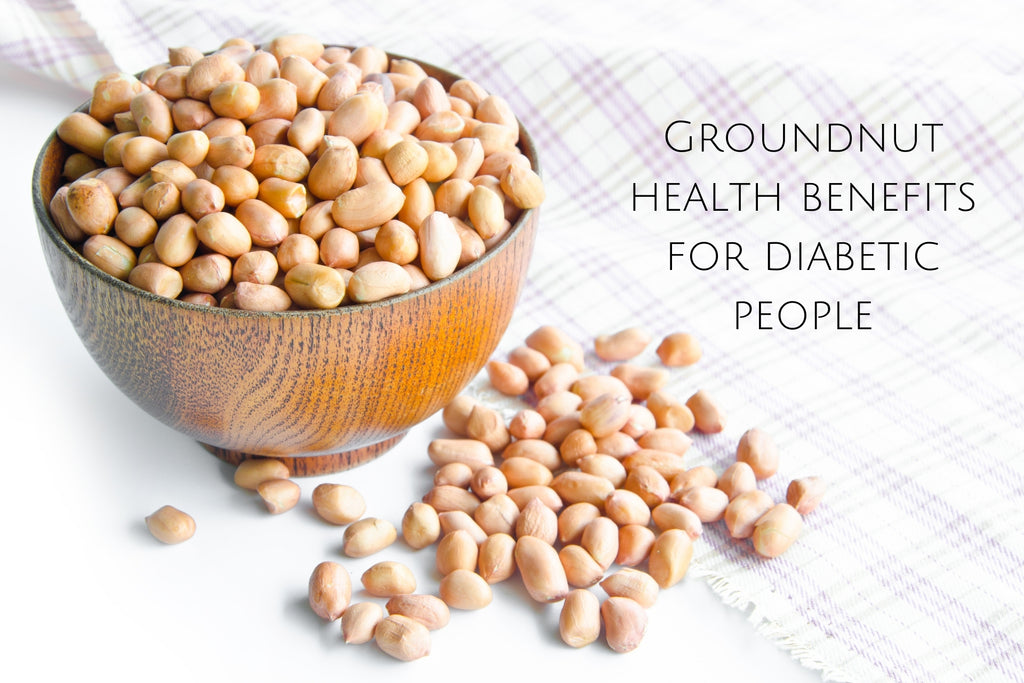
Groundnuts (peanuts) can have health benefits for people with diabetes:
- Low glycemic index helps stabilize blood sugar.
- Rich in fiber and healthy fats for appetite control.
- Provides protein for blood sugar regulation.
- Contains magnesium for better insulin function.
- Antioxidants protect cells from damage.
- Supports weight management when eaten in moderation.
- Nutrient-dense with essential vitamins and minerals.
However, portion control is crucial due to their calorie density, and individual responses may vary, so monitoring blood sugar levels is essential. Consulting a healthcare professional or dietitian is recommended to include groundnuts in a balanced diabetic diet.
Health benefits of groundnuts for weight loss:
Protein: Protein helps to build and repair muscle, and it also helps to stay feeling full. A handful of groundnuts contains about 6 grams of protein, making them a good source of this nutrient for weight loss.
Fiber: Fiber helps to keep you feeling full and satisfied after eating, and it can also help to regulate your blood sugar levels. A one-ounce serving of groundnuts contains about 3 grams of fiber, making them a good source of this nutrient for weight loss.
Healthy fats: Groundnuts contain a variety of healthy fats, including monounsaturated and polyunsaturated fats. These fats can help to lower your cholesterol levels and reduce your risk of heart disease. They can also help you to feel full and self-satisfied after eating.
In conclusion, groundnuts, commonly known as peanuts, are a valuable and versatile crop with a significant impact on agriculture, nutrition, and economics worldwide. They are rich in nutrients, including protein, healthy fats, vitamins, and minerals, making them an important source of sustenance for many populations. Groundnuts are consumed in various forms and are used to produce products like peanut butter and peanut oil. The cultivation of groundnuts has both economic benefits for farmers and environmental challenges, such as water usage and soil erosion, highlighting the importance of sustainable farming practices. Ongoing research and development efforts aim to improve groundnut varieties for higher yields and disease resistance, as well as enhancing their nutritional content.Overall, groundnuts play a crucial role in global agriculture and nutrition, and their importance is likely to continue as efforts to address food security and sustainability issues persist.

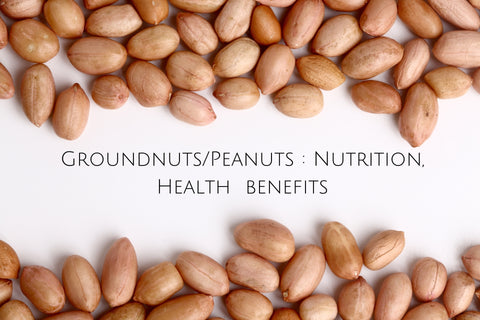

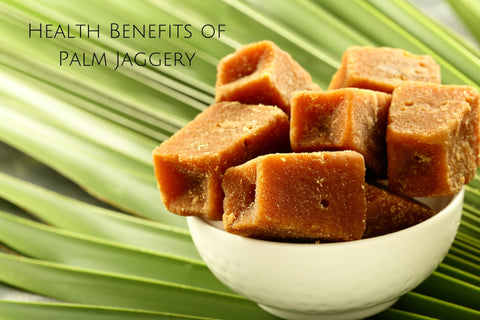
Comments (0)
There are no comments for this article. Be the first one to leave a message!